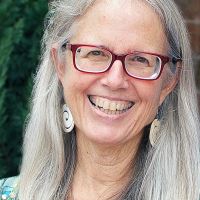Commentary on 2 Samuel 5:1-5, 9-10
This passage signals the new reign of David as king. It is a time of transition to a new way of doing things, an opportunity for a united kingdom, in a new city, with a new “shepherd-king.”
The shepherd way of ruling
The first two verses convey striking images of power: “Saul was king over us” and “you [David] who shall be shepherd of my people Israel” (verse 2). Saul’s rule was marked by “power over,” while David is first described as shepherd, not the typical image of power and might. David is the one “who led out Israel and brought it in,” just as a shepherd takes out his flock to feed and brings it in at night for safety. In this new way of ruling, the king is not so much the mighty one fixed upon his throne, but the simple shepherd who feeds his flock as he guides them to nourishment and protects them from danger and predators.
This alternate way of exercising power, not through brute domination but through caretaking, signals a radical shift. David’s mission is not simply to hold power but to steward that power on behalf of God’s people, as a shepherd stewards her flock. To be sure, David does not always succeed in this task, as Nathan’s prophetic confrontation makes plain (2 Samuel 12).
The shepherd way of ruling may tell us something not only about this shift for Israel, but also something about God and the ways God holds power, not through coercion or force but like a shepherd keeping her flock. Jesus, the Good Shepherd, will also show us who God is (John 10, 1 Peter 5). In the gospel reading this week, Jesus does not use brute domination when his credentials are questioned (Mark 6:2). Furthermore, when he sends out the twelve, he instructs them to proclaim good news in simplicity and peace (Mark 6:7 and following), not through spiritual bullying or force. Jesus demonstrates the shepherd way of holding power.
The people’s choice
Remember that David’s predecessor, Saul, is anointed by Samuel when they are alone (1 Samuel 10). This is a private pronouncement and anointing, although Samuel later calls together all the people to acclaim Saul king.
Our passage this week describes a very different sequence of events. Earlier, in chapter 2, the tribe of Judah had proclaimed David king at Hebron (2 Samuel 2: 4). Now, with Israel, David’s anointing is public, including a gathering of the tribes. There in the midst of the gathered elders at Hebron, David makes a covenant with them (verse 3). Then, “all the elders of Israel . . . anointed David king over Israel” (verse 3).
To be sure, this is not some ancient form of democratically elected government. The Bible knows nothing of democracy. Rather, here we notice that “the shepherd way of ruling” entails the gathered people, shepherding all the sheep, not just the king’s favorites.
Critique of monarchy
In the midst of this celebration, it can be easy to forget that the prophet Samuel first offered a critique of the people’s desire for a king back when he anointed Saul (1 Samuel 10).
Why do we humans seem to want a powerful person in authority? Most often, we place our sense of security in that person. We draw our identity and safety from the king (substitute here any authority figure: president, CEO, governor, lead pastor, military general, opinion leader, ideological guru, spiritual teacher, etc).
This is a fundamental category mistake and Samuel tells them so. Our identity and security come only from God, the Source of our lives, in whose image we are created (Genesis 1:26). When God’s people clamor for monarchy so that they can be like the other important nations, Samuel calls out the idolatry of entrusting our lives to “the king” instead of to God: “But you have now rejected your God, who saves you out of all your disasters and calamities. And you have said, ‘No, appoint a king over us’” (1 Samuel 10:19).
Even as we see the new “shepherd way” of ruling that David embodies, it’s important to remember there can be a fundamental mistake built into the very DNA of this political system.
Unity of the tribes
In the first verse we are told that “all the tribes of Israel” (verse 1) joined in unanimous affirmation of David’s kingship. These tribes who had fought and grumbled against one another, joined as one, obedient to God’s decree that the house of David would rule over the people. Again, this happens on the heels of the southern tribe of Judah doing the same.
It’s worth pausing here to notice what didn’t happen. In the power vacuum of Saul’s death, there could easily have been generations of conflict and intrigue that further fragmented the twelve tribes as they vied for ascendence. Plots, assassinations, wrangling for power, were the common strategies of the day. And we will see some of this during David’s reign. Still, this rare moment of unity is striking.
A new place
The reign of David is signaled by a new unity of the tribes, a new shepherd way of ruling, a new ritual of public anointing and pronouncement and now, all of this embodied in the establishment of a new place, a new physical location of the heart of Israel, Jerusalem. “David occupied the stronghold, and named it the city of David” (verse 9). For millennia, Jerusalem would stand as a holy city, the center of God’s people.
For us
2 Samuel 5 invites us to ask: How do we hold power, or exercise agency, on behalf of all, not just our own tribe, group, church or ideological camp? As we recognize the anniversary of the Declaration of Independence we are more aware than ever that the aspirations of this document fell short of holding power on behalf of all.


July 4, 2021